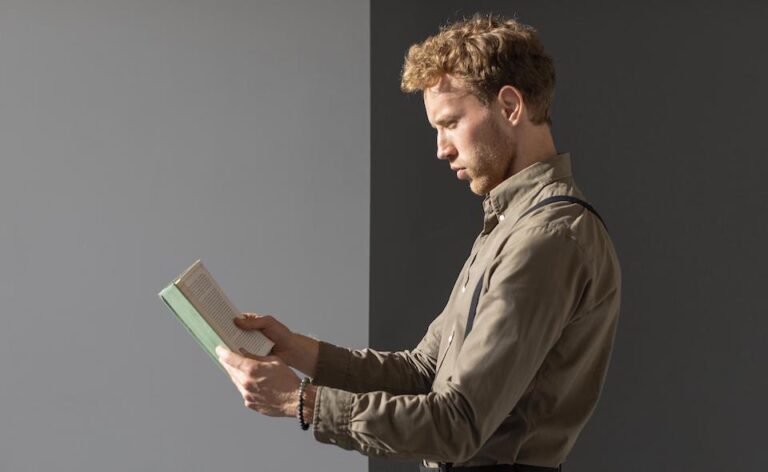Interested in learning about personal finance? Would you like to improve your financial situation, learn how to avoid drowning in debt, and perhaps even create more wealth for yourself and generations to come? You are in the right place. I’m about to share insights into personal finance and how you can get started.
Learning what personal finance is helps you understand and master significant activities that help you increase your earnings and spending.
But let’s dive in to get a better grasp of what it is.
What is Personal Finance?

Personal finance is all about handling your money and making smart decisions to make sure your finances are in good shape. The goal is to stay financially stable and reach your money goals.
What “Personal Finance” Means
Personal finance is about having a clear vision or a roadmap for what to do with your money to achieve long-term financial success. It’s about having the knowledge to generate more income or cut spending to increase what you already have.
For example, if you are a university student, personal finance means you’ve already set aside enough money to pay off your student loan quickly.
If you’re a freelance copywriter or UX designer, personal finance means you pushed that bottom line so you can afford what you want, when you want.
If you’re a school teacher, personal finance means getting the raise you’ve always wanted. If you’re retired, personal finance means having more than enough savings to live comfortably.
According to Investopedia, a part of personal finance is like having the idea that you have to spend less than you make. Apparently, if you make $60,000 yearly but spend $70,000, you’ll end up in debt every year and struggle financially. Personal finance means you have a game plan when times get tough. It means not waking up in the morning wondering how you’re going to make it through the week. It ensures you have enough money set aside so that you can still enjoy life yet have a nest egg for those rainy days.
Where to learn personal finance?
Personal finances can be learned from the comfort of your home: through books, podcasts, and blogs like this one. Don’t be fooled into thinking you need to spend big money to learn the secrets to wealth — money is far more simple, approachable, and accessible than that.
You can start your personal finance journey here with us at Nestonomics, where we have curated many articles on the ins and outs of money, wealth, and spending.
How Can Personal Finances Help You in the Future?
Learning about personal finance can help you gain the freedom and wealth you’ve only dreamed of. Personal finances can help you not only reduce the stress of money and reach stability right now, but they can also help you set the right goals. They can help you become financially independent and even build wealth for yourself and for generations to come. Depending on how well you earn, spend, and invest your money, you will be able to get ready for retirement or even accumulate enough wealth to retire early.
Why Personal Finance is Important
Many face inflation, economic instability and a lack of savings, no wonder 70% of Americans and 55% of Canadians worry about personal finances. Effective personal finance management is your roadmap to material success. It shows you how your finances are working for you right now, helps you avoid falling headlong into debt, and directs you toward long-term prosperity.
Keep reading to understand the benefits of personal finances and the role they can play in your life.
Also Read: How to be Financially Stable: Take Control of Your Finances in Three Easy Steps
What are the Main Benefits of Personal Finances?
Personal finance offers numerous benefits, listed below:
- Emergency preparedness.
- Debt management.
- Clarity.
- Better quality of life.
- Reduce stress.
- Lifestyle improvement.
- Self-reliance.
- Generational wealth.
Emergency Preparedness
A key concept of personal finances is creating a nest egg. A nest egg is just a fancy way of saying that you’ve set aside some money. So, in the chance your car breaks down, your home has a flood, or you’re really craving that super deluxe latte, you have the funds to cover it.
According to Manulife, it’s recommended to have at least 3-6 months’ worth of a nest egg, or savings, stored up. However, they mention that if you’re currently dealing with debt, your emergency fund should be smaller, starting around $2,500 to $5,000. This gives you an emergency fund that is still accessible and vital without pushing you behind on your debt too much. This is what I mean when I say it’s important to learn what is personal finance.
Debt Management
Debt management is like a food-eating contest. It’s all about how fast you can eat up those pesky interest fees and chip away at the debt sitting on your credit card, or your student loans. Looking at the big number can be intimidating for a lot of Canadians and Americans, so it’s better to look at debt management in smaller, bite-size chunks to conquer. Before you know it, your personal finance practices will have you debt-free and able to breathe properly.
Clarity
Gaining clarity is a huge bonus when it comes to understanding the benefits of personal finances. Personal finances are like a shining beacon on a stormy night, giving you the ability to dock your ship safely. You are given clarity — the ability to see — regarding your finances and debt — the stormy night. This clarity can mean the difference between taking a second job to make ends meet or relaxing on your days off with everything you love. Learning what is personal finance is so important because it helps you avoid situations like these.
Better Quality of Life
With personal finances, you can say yes to that extra latte, and maybe even go on that trip you’ve been planning for years. Personal finances give you the green light on better things in life, and more opportunities.
According to Ramit Sethi, “There’s going to be a limit on exactly how much you can save, but there’s no limit, no ceiling, on how much you can earn.”
Reduce Stress
From what I’ve learned, stress reduces when you feel in control of your finances. This stress reduction includes knowing you have money in case of an emergency, and a realistic picture of how much you can spend right now, and what you need to do to get that thing you’ve always wanted, be it a new car, or investing in ETFs.
Lifestyle Improvement
Along with a reduction in stress and a better quality of life, you’ll also experience an improvement in your lifestyle. This can appear as simple as traveling more, spending more money on hobbies, and spending more time pampering yourself with leisure activities. I like to think of lifestyle improvements as being able to go out to dine without worrying about the bill that will come at the end. Having an understanding of what is personal finance means more smiles for you and your family.
Self-Reliance
Self-reliance is ever-so-important in this day and age. Now, with personal finance at your side, you can hold your head up high because you don’t need to ask for money and won’t ever have to rely on others. This also extends to institutions. Instead, you’ll be able to handle your money and your nest egg on your own in case of any emergencies, and that gives a person a lot of pride.
Generational Wealth
When it comes to another benefit of personal finances, you have to keep in mind that any accumulation of wealth you can gain from following this money management method will trickle down to your kids and grandkids. It puts you and your family in a good position, so the wealth you gain will compound and be availed for generations. This way, your children and your grandchildren will understand what is personal finance and how they can maintain a financially fit life.
What Happens if You Don’t Do Personal Finances
If you don’t manage your personal finances or act on this knowledge, a lot can happen, and a lot is already happening. You will keep using bad money management habits that will keep you closer to living paycheck to paycheck. It doesn’t matter if you earn $5,000 a month; if you spend $5,500 every month, you aren’t utilizing personal finance skills, which will bite you in the future.
A couple of bad habits of not following personal finance skills include:
- Ignoring due dates. Ignoring the due dates of credit cards is bad for your personal finances because this impacts the health of your credit score. If you want to buy a house in the future, you need this score as high as possible to ensure you can get a mortgage.
- Allowing debt to accumulate on credit cards. This is another strike against personal finance teachings, as allowing debt to grow puts you deeper into the money pit and makes it harder to get out of debt and a longer process. No one should carry around debt, so increasing it willfully will make things much harder later in life.
Tips to Improve Personal Finances

Everyone likes a shortcut. For more details on how to save and improve your personal finances, check out our article here.
Conclusion
Yes, learning what is personal finance means you can have your cake and eat it too. I hope you’ve walked away with some key insights into your finances that will prove to be more and more insightful down the road as you create a roadmap, or financial plan, of your own.
Interested in learning more? I would recommend checking out our Top 10 list of the best personal finance books, like The Psychology of Money.
How will you be starting your financial roadmap? What are your thoughts on what is personal finance? Share with us in the comments below!



